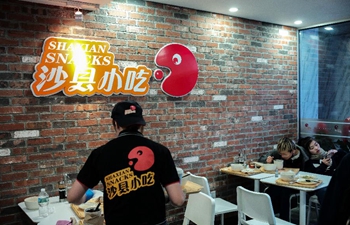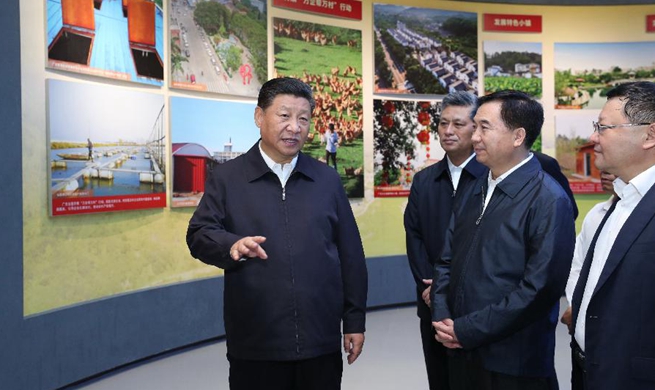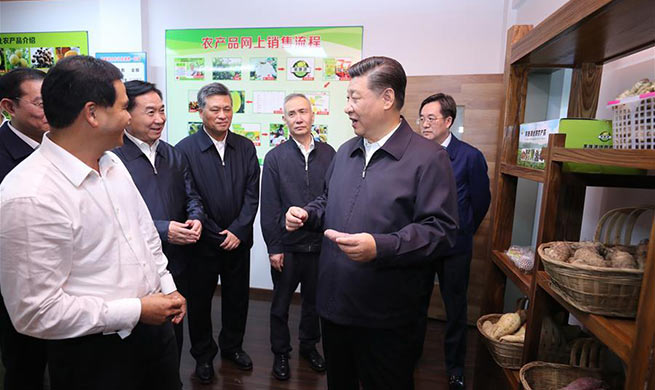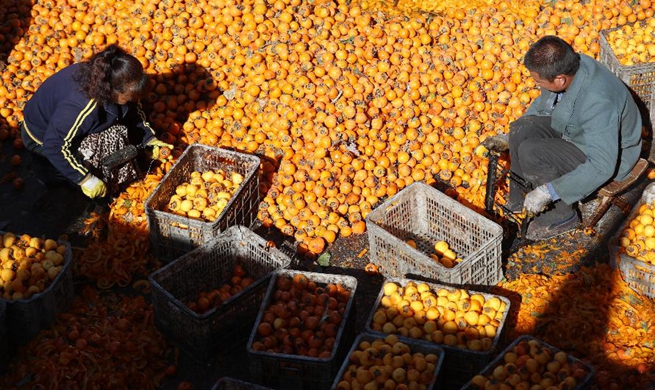NAIROBI, Oct. 24 (Xinhua) -- Simon Mutua is an auditor working in Kenya's capital Nairobi, but on the side, he is a beekeeper in Kibwezi, his rural home, some 150 km from Nairobi.
Every weekend, Mutua travels to his rural home to check on his bee project, with his parents who stay on the farm helping him manage the insects when he is not around.
"I have 30 hives and each offers me at least 15 kg (of honey) after every three months," he said on Wednesday.
For the last two weeks, Mutua, 34, has been harvesting honey from 10 hives, with the product flying off the shelves as soon as it leaves the hives.
He attributes the fast sale to social media, through which he exclusively markets his produce.
"A week before I start harvesting, I post on my social media page inviting buyers. People then book and I process the orders," said Mutua, who mainly uses Facebook and WhatsApp apps to sell the products.
"I never go out looking for market but people come for the produce from me," he said.
Mutua is among an increasing number of young farmers in the east African country who exclusively use social media to get lucrative market for their produce.
As older farmers stick to the traditional way of selling produce to brokers, the younger generation have embraced social media and bypassed middlemen to reach consumers directly.
The newer mode of sale has also fetched higher prices, enabling the farmers to earn more.
"I sell a kilo of honey at 8 U.S. dollars to consumers. If I was to sell the honey to a trader, he would buy at half the amount or even less," noted Mutua.
Farmer Collins Akutu, 28, who keeps poultry, says he sells his broilers through WhatsApp groups. He is preparing for a boom as Christmas season approaches.
"I belong to at least 15 WhatsApp groups. These are for people I work with, live with at the estate and at school," he said, adding it's the fastest and easiest way to sell.
He posts photos of his chickens and their prices online, either through WhatsApp or on Facebook.
"Some people pay through mobile money and then I deliver" he said. "So far, so good."
Kenyan farmers often complain of being exploited by traders who according to studies reap up to twice as much as the producers.
The brokers, for instance, now buy an extended bag of potatoes that weighs 110 kg at 20 dollars and sell it at nearly double the price.
Most of the time they go for the produce from farmers on the farm, using their bargaining power to their advantage, especially when there is glut.
"Social media marketing challenges this model that has been in existence for ages," said Bernard Mwaso, a consultant with Edell IT Solution in Nairobi. "It puts the farmer at an advantage because they can reach thousands of consumers directly and therefore sell at better prices."
Farmers also get extension services through social media platforms.
"Every time I detect a pest or disease on my tomatoes, I take a photo and post to a farmers' WhatsApp group I belong to and get immediate answers," said Derrick Ngugi, who farms tomatoes.
Bernard Moina, an agricultural officer in Kitale, noted that social media has made work easier for extension officers. He belongs to four farmers' WhatsApp group, and answers their questions that they regularly ask.












